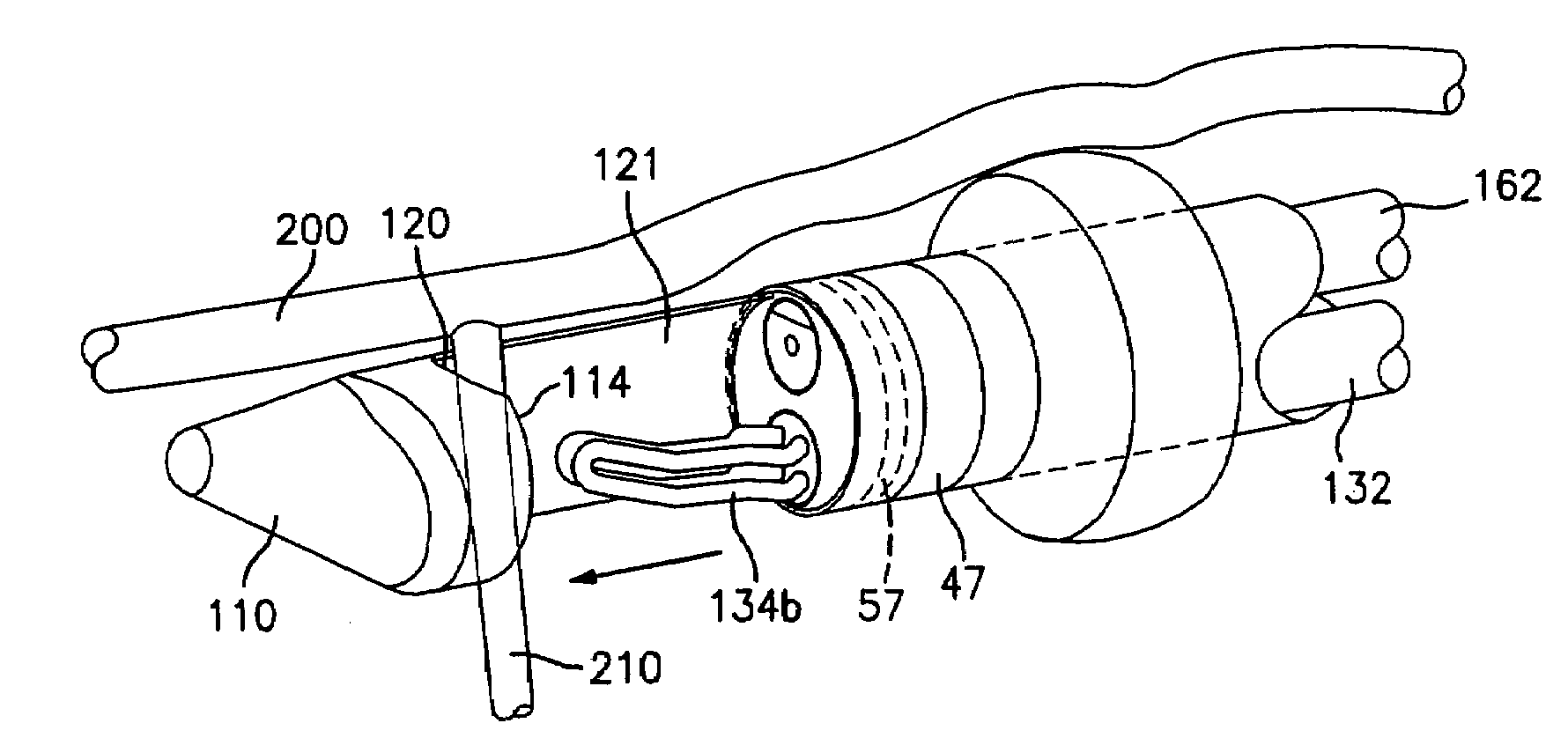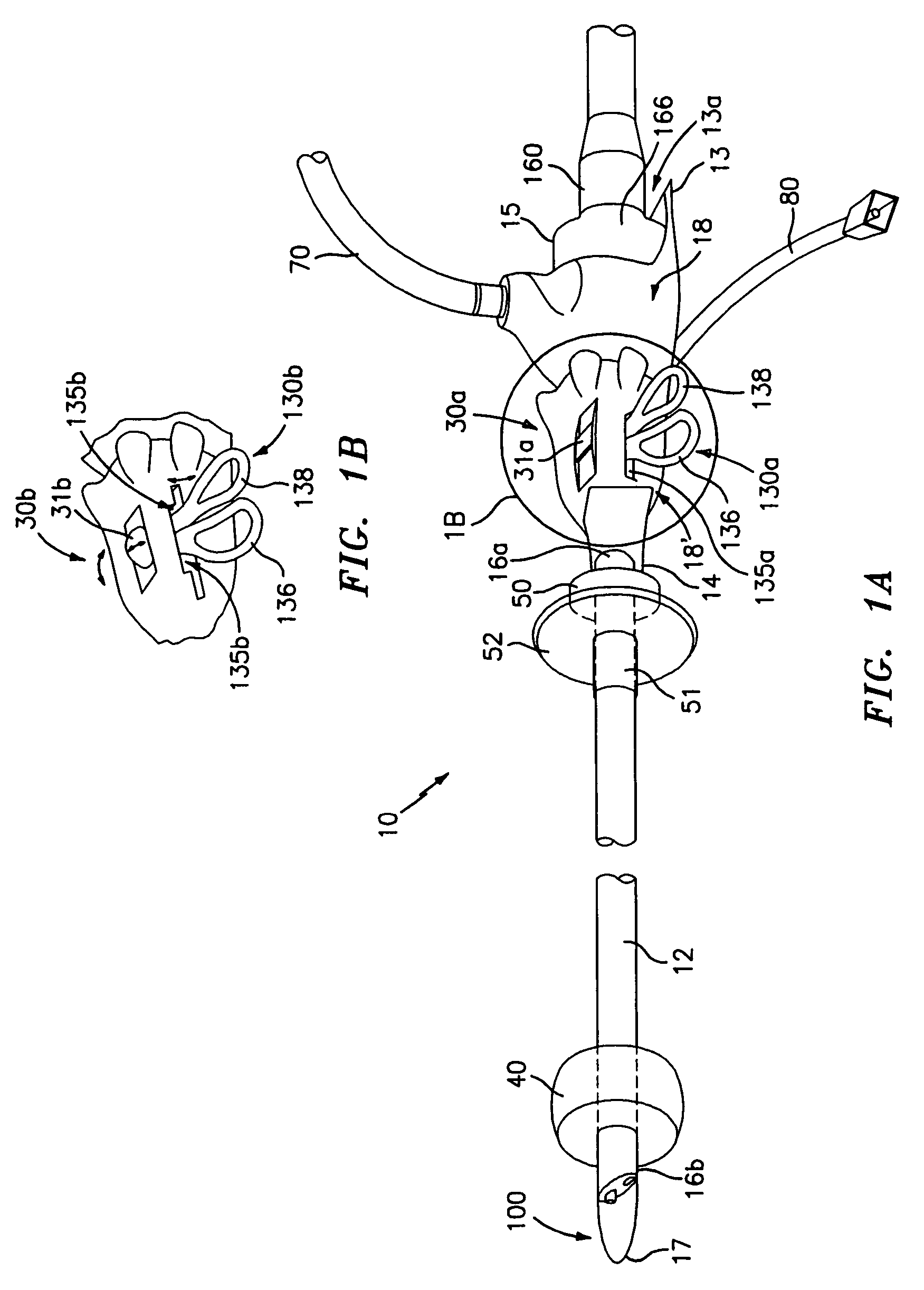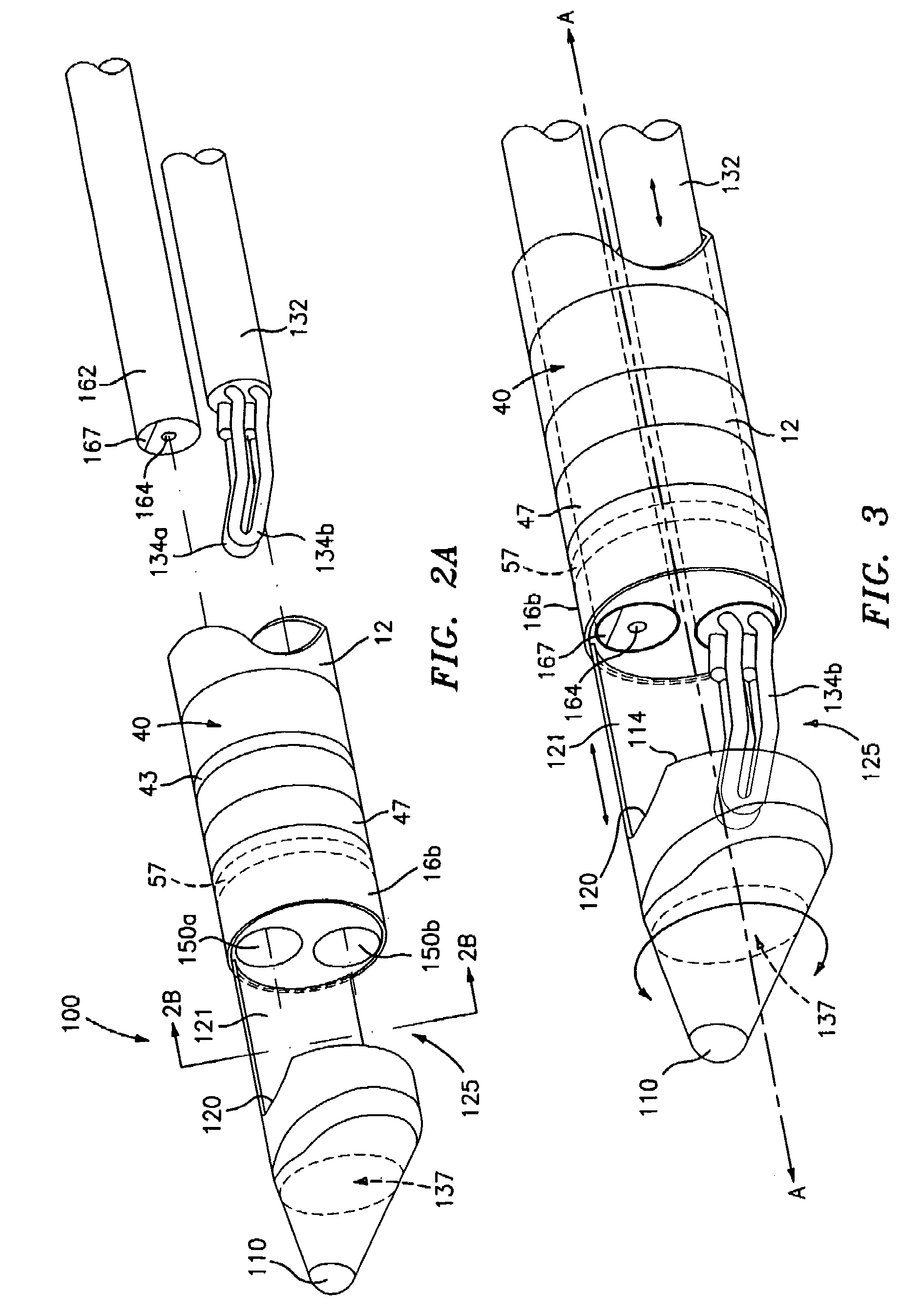Conduit harvesting instrument and method
a conduit and instrument technology, applied in the field of instruments and methods for performing minimally invasive, laparoscopic or endoscopic surgical procedures, can solve the problems of requiring a high degree of skill and precision, tedious procedures, and often requiring enormous skill and precision to harvest these conduits from the body, so as to facilitate the blunt dissection of surrounding tissue, facilitate the ligation and/or separation, and facilitate the orientation and positioning and securement
- Summary
- Abstract
- Description
- Claims
- Application Information
AI Technical Summary
Benefits of technology
Problems solved by technology
Method used
Image
Examples
Embodiment Construction
[0070]Referring now to FIGS. 1A-4, there is disclosed one embodiment of an endoscopic vessel harvesting instrument 10 that can be employed for harvesting vessels 200 (FIG. 5) for use, e.g., in bypass procedures, in particular, coronary bypass procedures. Harvesting instrument 10 includes a proximal end 15, a distal end 17 and an elongated shaft 12 disposed therebetween, but not necessarily in direct communication with such ends 15 and 17. For the purposes herein, it is understood that FIG. 1A discloses one embodiment of the presently disclosed instrument. As described in more detail below, it is envisioned that the instrument may include a base housing which is integral with or attachable to a shaft housing and a shaft which is integral with or attachable to the shaft housing. In such instances, what is commonly termed the “proximal end” may change depending upon whether a single, integral, base housing is utilized or a combination base housing and shaft housing is utilized.
[0071]El...
PUM
 Login to View More
Login to View More Abstract
Description
Claims
Application Information
 Login to View More
Login to View More - R&D
- Intellectual Property
- Life Sciences
- Materials
- Tech Scout
- Unparalleled Data Quality
- Higher Quality Content
- 60% Fewer Hallucinations
Browse by: Latest US Patents, China's latest patents, Technical Efficacy Thesaurus, Application Domain, Technology Topic, Popular Technical Reports.
© 2025 PatSnap. All rights reserved.Legal|Privacy policy|Modern Slavery Act Transparency Statement|Sitemap|About US| Contact US: help@patsnap.com



